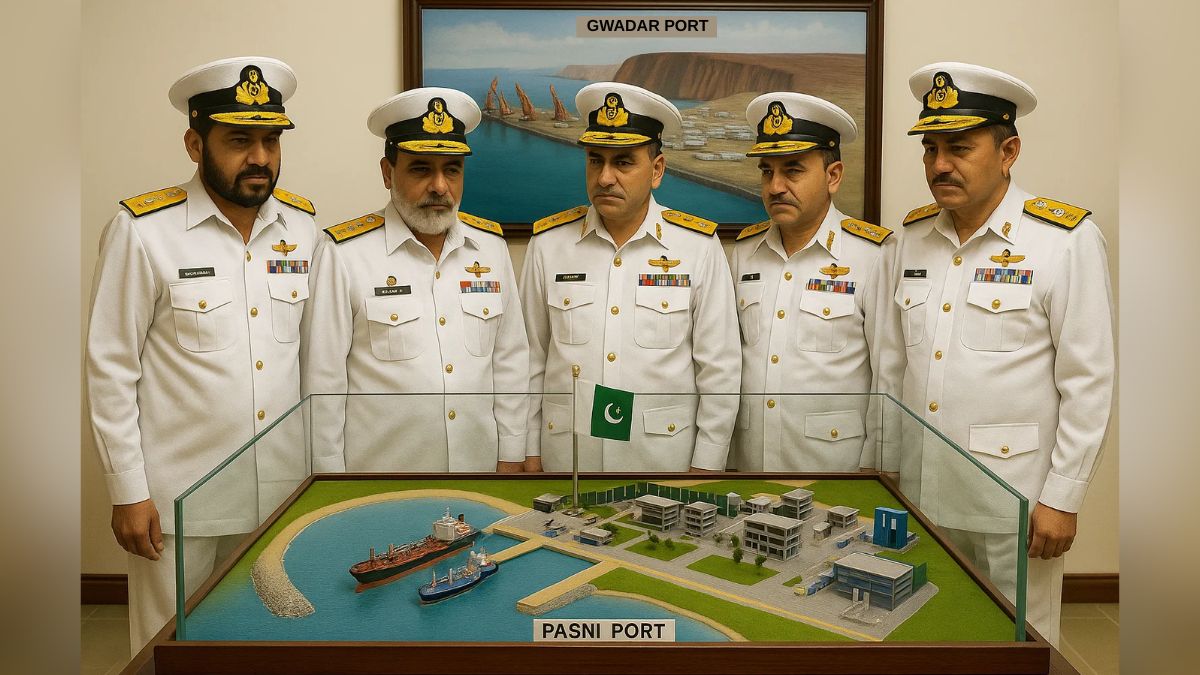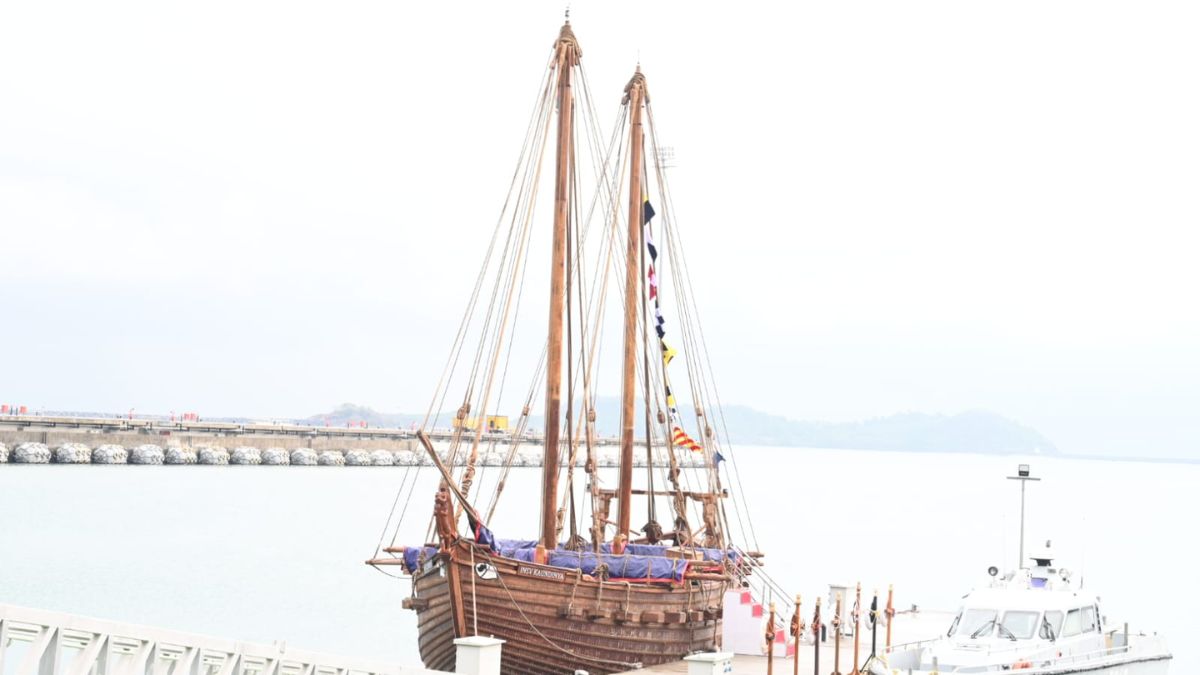Memories Of Gwadar: Concerns Over Pakistan’s Naval Elite Turning Pasni Port Into Private Profits Loom Large

Pakistan has had a longstanding trend of the elite in the Navy profiting off of the country's resources. Image courtesy: AI-generated picture via Sora
A new port proposal is making waves along Pakistan’s coastline. Advisers close to Army Chief Field Marshal Asim Munir have reportedly floated an idea to develop a deep-sea port at Pasni, barely 75 kilometres east of Gwadar. The proposed facility, estimated at around $1.2 billion, is pitched as a commercial terminal to export critical minerals, supported by a new rail link to Pakistan’s mineral-rich interior. It is an ambitious plan, seeking Western capital to balance China’s dominance under the China–Pakistan Economic Corridor (CPEC).
But the real concern lies elsewhere. The Pasni project risks becoming another chapter in the military’s growing portfolio of rent-seeking enterprises where strategic assets are built and managed for the profit of the uniformed elite.
Can Pasni Port become a repetition of the Gwadar Port betrayal?
If history is any guide, Pasni may not emerge as a symbol of prosperity, but of privilege. The blueprint is already visible in Gwadar, once hailed as Pakistan’s “gateway to prosperity” and the crown jewel of CPEC. Launched with grand promises of regional connectivity and coastal revival, Gwadar was supposed to uplift Balochistan’s economy and create thousands of jobs.
Instead, it has become a closed fortress. The port and its adjoining free zone are operated by the China Overseas Ports Holding Company, under exclusive arrangements with the National Logistics Cell (NLC)—a military-run enterprise. In effect, what was meant to be a national trade hub has turned into a joint venture between Chinese contractors and Pakistan’s military establishment.
For the people of Gwadar, the dream of development has dissolved into daily hardship. Checkpoints and restricted zones now dot the city, strangling movement. Local fishermen—once the backbone of the coastal economy—have seen their incomes destroyed by illegal trawlers operating under official protection. The Haq Do Tehreek (“Give Rights Movement”) has staged repeated protests against this dispossession, only to be met with arrests and intimidation. Even the Gwadar International Airport, inaugurated with great fanfare, remains largely idle—its runways waiting for flights that never arrive.
How do naval elite in Pakistan rake in profits?
While the Army has long been criticised for its control over land, logistics, and construction through the Fauji Foundation and Army Welfare Trust, the Navy has also built its own commercial empire along Pakistan’s coastline. The Bahria Foundation, presented as a welfare initiative for naval personnel, has grown into a vast business network encompassing maritime logistics, technical services, shipping, and even real estate.
This structure allows naval-linked enterprises to capture revenue from nearly every aspect of maritime activity—port handling, ship repair, dredging, security, and training—without public accountability. Each increase in port traffic or coastal infrastructure spending enriches this network, which operates under the protective veil of “welfare.”
In Gwadar’s case, this dynamic is unmistakable. The Navy maintains a heavy footprint in and around the city, with PNS Akram serving as a strategic outpost. The Navy’s foundations and subsidiaries have embedded themselves in ancillary services connected to Gwadar’s port and logistics sectors. As a result, commercial rent flows to Chinese operators, while strategic rent accrues to Pakistan’s naval elite.
Why is Pasni at risk of becoming cash cow only for a few?
This is what makes the Pasni proposal troubling. The planned site sits squarely within the Navy’s operational domain. Any major maritime development there—especially one built under military patronage—would almost certainly bring the Bahria Foundation and related naval enterprises into the picture.
What begins as a port for mineral exports could soon morph into another military-commercial complex: a network of “welfare” subsidiaries cornering contracts, operations, and services. The pattern would mirror Gwadar’s descent from development vision to monopolised enclave.
Welfare or windfall?
Pakistan’s military foundations were originally created to support veterans and their families. Over time, they have evolved into sprawling conglomerates shielded from parliamentary oversight and civilian competition. Their leadership is drawn from serving or retired officers; their accounts are opaque. Civilian oversight mechanisms—audits, disclosures, and regulatory checks—are routinely bypassed under the pretext of national security.
The result is a state within a state: uniformed institutions functioning as profit-seeking corporations, often at odds with the welfare of the very citizens they claim to serve.







